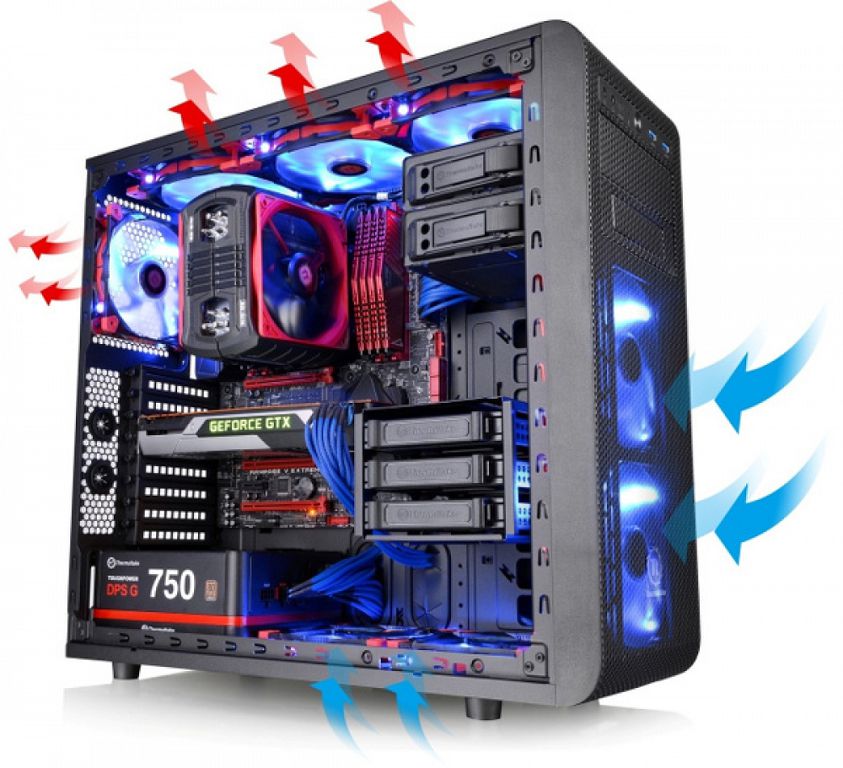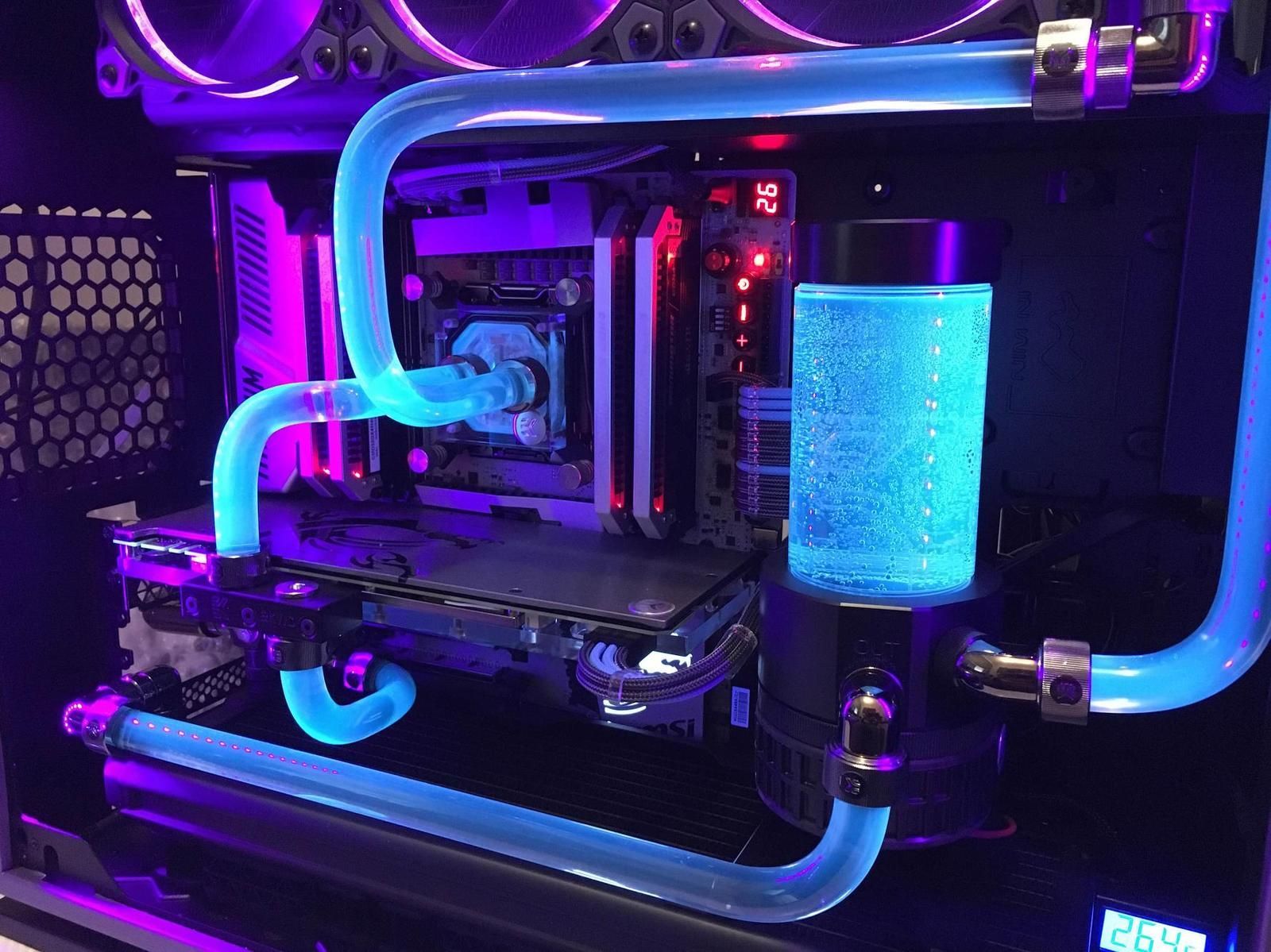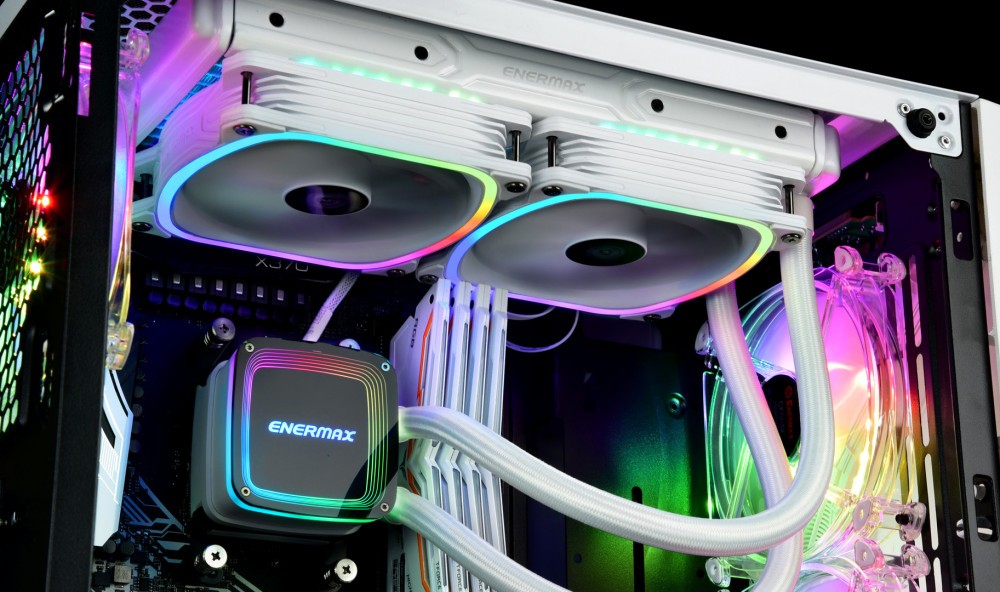
Best Cooling Systems for Gaming PCs: Air or Liquid Cooling
Introduction
Efficient cooling for gaming PCs is important to maintain stable temperatures and prevent overheating during intense gaming sessions. There are two main cooling solutions that dominate the market: air cooling and liquid cooling. Each of them has its own pros and cons to suit the different preferences and requirements of gamers. This article compares air and liquid cooling systems to help you make an informed decision about your gaming hardware.
1. Air cooling
1.1. How air cooling works
Air cooling relies on fans and heatsinks to remove heat from the CPU and GPU. The heat sink absorbs heat from the components, and fans move air through the heat sink to remove the heat. Air coolers are typically mounted directly onto the CPU or GPU and use a single or dual tower design for better heat dissipation.
1.2. Pros of air cooling
- Availability: Air coolers tend to be more affordable than liquid cooling solutions, making them a budget option for gamers.
- Low maintenance costs: They have fewer components and moving parts, reducing the risk of leaks or pump failure.
- Easy Installation: Air coolers are relatively easy to install and require minimal setup compared to liquid cooling systems.
1.3. Disadvantages of air cooling
- Size restrictions: Larger air coolers may not fit in smaller cases or may obstruct RAM slots and motherboard components.
- Noise Level: Air coolers with high-performance fans can be noisy under load, especially during intense gaming sessions.
- Limited Cooling Capacity: While air coolers are effective for most gaming scenarios, they can struggle under extreme overclocking or high ambient temperatures.
2. Liquid cooling

2.1. How liquid cooling works
Liquid cooling uses a closed loop system (AIO coolers) or a special loop of coolant (water or a special fluid) to remove heat from the CPU and GPU. The water block contacts the component, and the pump moves the fluid through tubes to the radiator, where the heat is removed by fans. Liquid cooling provides superior heat dissipation and can be more efficient than air cooling.
2.2. Pros of liquid cooling
- Superior Cooling Performance: Liquid cooling can handle higher thermal loads and maintain lower temperatures compared to air cooling.
- Aesthetics: AIO coolers often come with RGB lighting and sleek designs that enhance the visual appeal of your gaming rig.
- Flexibility: Custom-loop liquid cooling allows components, coolant color and piping layout to be customized to suit the needs of enthusiasts.
2.3. Disadvantages of liquid cooling
- Cost: Liquid cooling setups, especially custom circuits, can be expensive due to the cost of components, coolant, and maintenance.
- Complicated Installation: Custom circuits require more experience and time to install correctly, including tubing, fittings, reservoirs and coolant controls.
- Maintenance: Liquid cooling systems require periodic maintenance to prevent coolant evaporation, pump failure, or leaks that can damage components.
3. Choosing between air and liquid cooling
3.1. Considerations
- Performance Requirements: If you overclock or use high-end components that generate a lot of heat, liquid cooling can provide better thermal management.
- Budget: Air cooling is cost effective for most gamers, while liquid cooling is an investment for enthusiasts looking for maximum performance and aesthetics.
- Build size and compatibility: Make sure your case has enough space for the cooling solution you choose, whether it's an air cooler or an AIO heatsink.
- Noise Resistance: Liquid coolers can be quieter under load due to larger fans that spin slower than high-performance air coolers.
Conclusion

Choosing between air and liquid cooling for your gaming PC depends on your performance needs, budget, and aesthetic preferences. Air cooling is a practical choice for most gamers, providing affordability and ease of installation. On the other hand, liquid cooling offers superior thermal performance and customizability, making it ideal for enthusiasts and overclockers. Carefully evaluate your requirements to choose the cooling solution that best suits your gaming setup and enhances your gaming experience with reliable temperature management.






